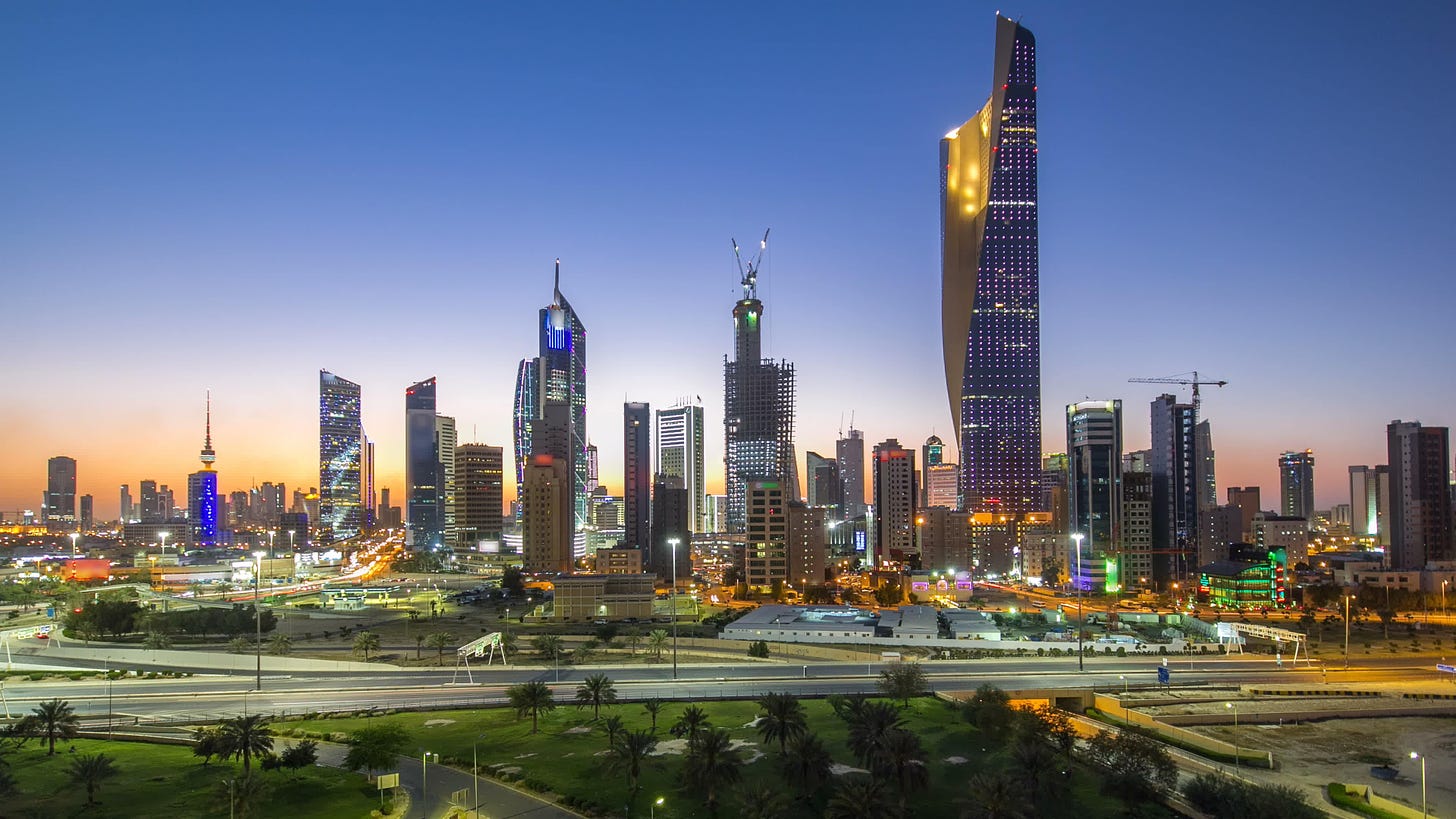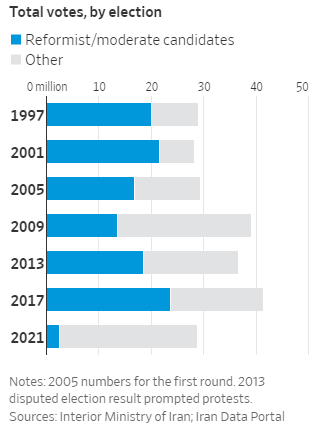Emerging Markets Daily - June 20/21
Kuwait Fund Caught in Power Struggle, Iran Hard-Liner Wins Election, Sudan Economic Reforms Spark Protests, Aramco Closes Pipeline Deal, Latin America Political Disarray
The Top 5 Emerging Markets Stories from Global Media - June 20 & 21
Kuwait’s $600 Billion Wealth Fund is Caught in a Power Struggle
Bloomberg
“The Kuwait Investment Authority, the world’s oldest state investment vehicle, has been in limbo since its board’s tenure expired two months ago. A new term has yet to be approved as political differences spill over into a disagreement over the make-up of the nine-member board, according to a person familiar with the matter.”
“The uncertainty now hanging over the KIA, which manages Kuwait’s vast oil wealth through two key funds, is emblematic of a broader malaise that’s paralyzed policy making, prompted ratings agencies to warn of downgrades and perversely left the government of a major OPEC crude exporter scrambling for cash. KIA officials were not immediately available for comment.”
“It’s all part of a deep standoff between members of the only elected parliament in the Gulf and a government whose leader is appointed by the ruling Emir, a deadlock that’s blocked the state from borrowing and left it with barely enough to pay public sector salaries. The dispute’s also delaying investment and economic reforms, including an overhaul of the welfare state the government says is needed to end eight consecutive years of budget deficits.” Fiona MacDonald reports
Iranian Hard-Liner Ebrahim Raisi Wins Presidency Amid Nuclear Talks
The Wall Street Journal
“A hard-line Iranian judge opposed to the country’s outreach to the West won Iran’s presidential election, consolidating conservative control over the country’s politics, as Tehran attempts to revive an international nuclear accord that would free the country of some U.S. sanctions.”
“Ebrahim Raisi received 17.9 million votes, or about 62% of the ballots cast, according to Iran’s interior ministry.”
“Mr. Raisi’s main challenger, Abdolnaser Hemmati, the only moderate candidate left in the race, received about 8.5% of the vote.”
“…Mr. Raisi’s victory was largely the result of a historically low turnout of 48.8%—a sign of the divisions within Iranian society and a reflection of widespread discontent with the lack of real choice in the vote.” Aresu Eqbali and Sune Engel Rasmussen report
Sudan Reels from Tough Reforms
African Business
“Thick plumes of smoke ŕose from blockades of burning tyres in the streets of Khartoum this week as protests flared following a government decision to remove subsidies on petrol and diesel.”
“The move, which brings fuel prices in line with import costs, will save the government several billions of dollars per year. It is also a key part of a painful 12-month IMF programme that ends in June, with a decision due by the fund on whether the country is eligible for further debt relief and financing.”
“…Sudan’s military-civilian coalition government is attempting to turn the economy around after decades of isolation from global markets. The country’s removal from the US state sponsors of terrorism list in December set in motion the country’s reintegration into the global economy after the ousting of long-time strongman Omar al Bashir in a 2019 popular uprising. But the country is still contending with $60bn in foreign debt.” Shoshana Kedem reports
Aramco Closes $12.4bn Pipelines Deal with EIG-led Consortium
The National
“Saudi Aramco, the world’s third-most valuable company and largest crude exporter, has closed a $12.4 billion deal with a consortium led by EIG Global Energy Partners for the acquisition of a 49 per cent stake in its oil pipeline business.”
“The deal is Aramco’s largest since its 2019 listing on the Tadawul exchange, when it raised more than $29bn.”
“It attracted a group of global investors from Asia, North America and the Middle East, including Abu Dhabi's sovereign fund Mubadala.”
“The new venture, Aramco Oil Pipelines Company, will lease rights to use the state oil company’s stabilised crude oil pipeline network, which connects oilfields to the downstream network, for 25 years.” Deena Kamel reports
Great Upheavals in South America
El Pais
“Riots in Colombia and Chile, electoral crisis in Peru, a threatened democracy in Brazil, political tensions in Ecuador and Bolivia, a faltering economy in Argentina and the chronic agony of Venezuela. The situation on the continent has taken a leap away from that which marked the golden years of the commodity boom in the past decade, when poverty was reduced and GDP grew at double-digit rates.”
“The pandemic hit a region with little room for political maneuver, with weak health systems, empty coffers and rising poverty. The current discontent and inherited or simmered inequality have lit the fuse of street violence, with particular processes in each country, but all of them crossed by demands that, like never before, have become structural. EL PAÍS offers a political, social and economic summary that allows the nearby destinations of the subcontinent to be read regionally.” El Pais reports (in Spanish)
Editor’s Note: The Emerging World weekend column will resume next weekend.




